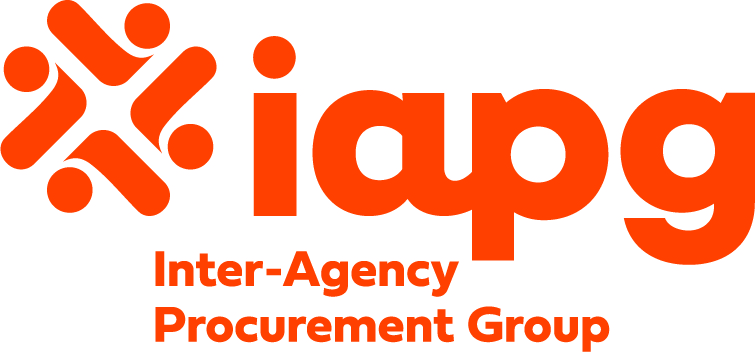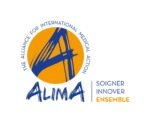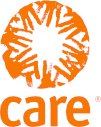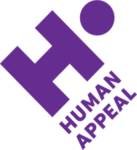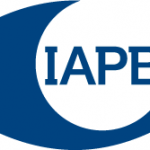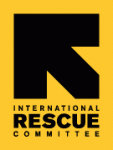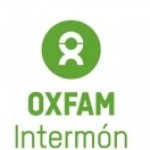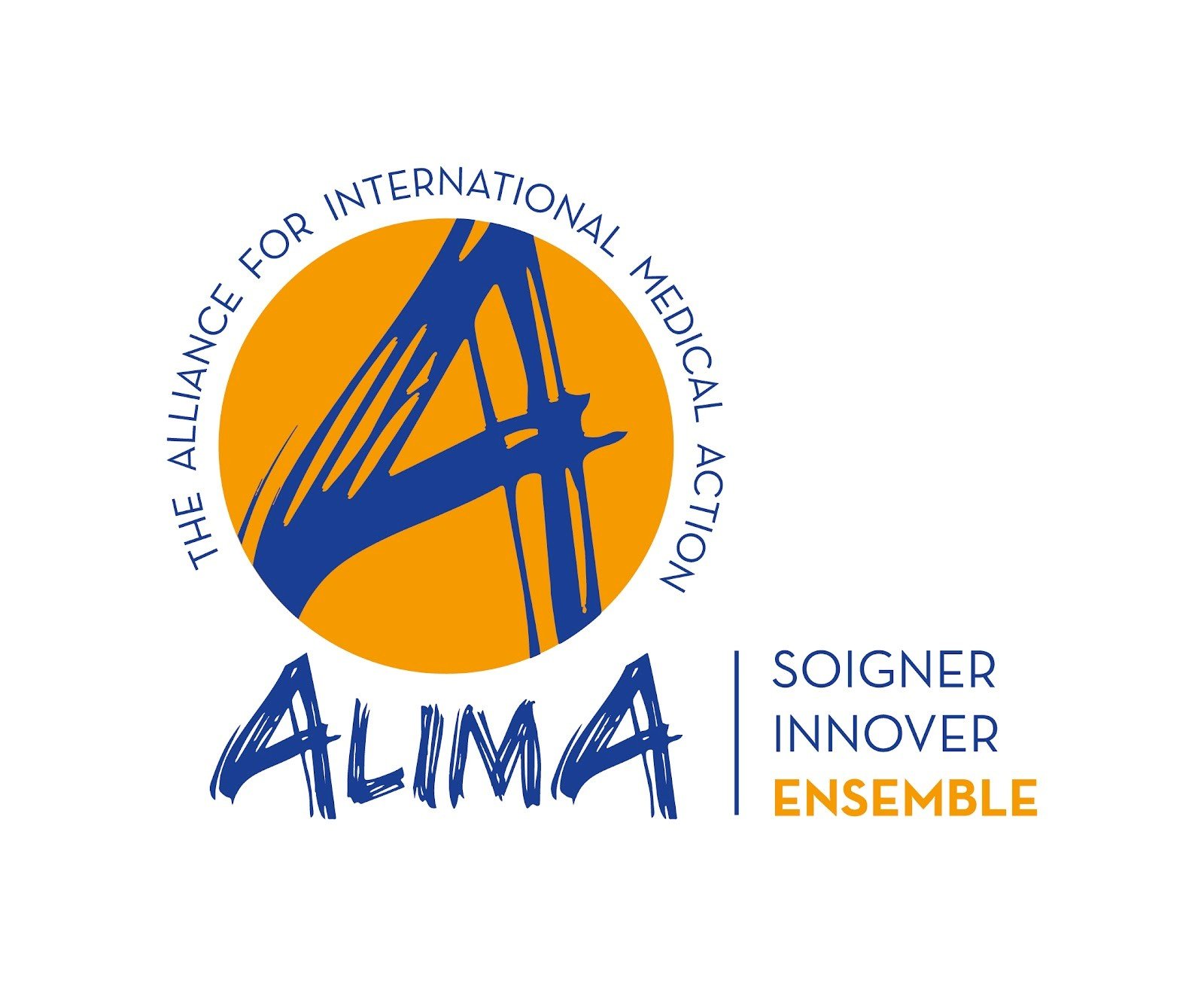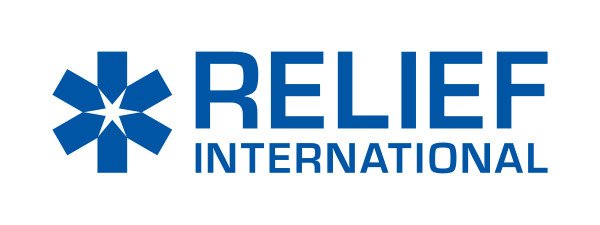
The Inter-Agency Procurement Group is a network of procurement professionals who share the idea that:
- International NGOs can enhance their influence among stakeholders and increase their negotiating power acting as a group rather than as individuals.
- Collaboration and knowledge sharing in procurement and the supply chain is key to maximizing the capacity of the whole community. Working together in this way will enhance the quality and the cost effectiveness of our actions for beneficiaries.
The Inter-Agency Procurement Group is a group of international NGOs who commit to:
- Share and exchange information amongst members and share business opportunities where possible
- Provide help, advice and support to each other through effective communications.
- Develop links with appropriate academic and professional bodies to enhance training opportunities and to provide learning to the academic world and across our organizations
- Be a collective voice that promotes the interests of the whole community among stakeholders.
Accountability
We are accountable to our Donors, Supporters, the People we serve (Beneficiaries), Suppliers (in the way we conduct tendering exercises and their outcome), Governing Authorities & Laws in countries we work in.
We shall engage in humanitarian supply chain activities as required to the best of our abilities. In doing so we shall:
- Preserve our beneficiaries’ dignity.
- Communicate courteously with Suppliers and Donors/Supporters.
- Deal with our colleagues and fellow IAPG members with respect.
- Abide by the laws and customs of the communities we work with
- Ensure we take into consideration the impact of our activities on sustainable development.
We will adapt to changing circumstances. To achieve this, we shall:
- Constantly develop innovative ways to improve procurement & logistics processes for humanitarian actors
- Overcome risks and logistical challenges to reach those in need, wherever they may be.
- Be responsive to our colleagues to ensure we deliver help to those who need it, when they need it.
Neutrality and Impartiality
When inviting to tenders, we will remain neutral and impartial. We will be independent when taking decisions in the best interests of our beneficiaries and in accordance with Donor’s guidelines.
Integrity
We shall:
- Act with sincerity, honesty and truthfulness.
- Always conduct our work according to best practices.
- Ensure the means we use will be based on the highest moral values.
Co-operation
We will seek to co-operate and co-ordinate with others INGOs and third parties in order to achieve our vision of efficiency & effectiveness in the Humanitarian supply chain.
- To share and exchange information amongst members, providing help, advice and support to each other through effective communications.
- To develop links with appropriate academic and professional bodies to enhance training opportunities and develop skills in the member agencies.
- To encourage links with specialised academic and professional bodies which encompass the needs of the IAPG.
- To identify and form relationships with organisations who can provide advice and assistance to members.
- To engage with institutional donors in development of policy.
- To use working groups to implement the on-going and annual objectives of the organisation.
- To meet 4 times per year to review this process.
- To undertake and share the results of relevant research projects, individually, in sub-groups or otherwise.
Our Fields of expertise
The Terms of Reference (TOR) for the IAPG Coordinator have been set up as follow:
- To draft the agenda for each meeting.
- To review and publish the minutes of each meeting (these will be supplied by the host organisation who will also chair the meeting).
- To coordinate speakers.
- To act as the contact point for IAPG.
- To issue reminders to members.
- To maintain the IAPG contact list to ensure that all members’ details are correct.
- To feed back at each IAPG meeting on anything noteworthy (eg problems, positives, issues that require further discussion).
- To receive e-mails from the IAPG website.
Ms Marie Houel
Current IAPG Coordinator
|
Since 1993, as an international non-governmental organisation, ACTED has been committed to immediate humanitarian relief to support those in urgent need and protect people’s dignity, while co-creating longer-term opportunities for sustainable growth and fulfilling people’s potential. ACTED is active in 37 countries and implements more than 490 projects a year reaching over 11 million beneficiaries with 4,600 national staff. ACTED endeavours to respond to humanitarian crises and build resilience; promote inclusive and sustainable growth; co-construct effective governance and support the building of civil society worldwide by investing in people and their potential. |
 ACF-France fights hunger in over 23 countries via the prevention, detection and treatment of malnutrition, in particular during and following disasters and conflicts. ACF-France focuses its activities on an integrated approach, taking various aspects into account: ACF-France fights hunger in over 23 countries via the prevention, detection and treatment of malnutrition, in particular during and following disasters and conflicts. ACF-France focuses its activities on an integrated approach, taking various aspects into account:
|
 Our mission is to save lives by eliminating hunger through the prevention, detection and treatment of malnutrition, especially during and after emergency situations of conflict, war and natural disaster. From crisis to sustainability, we tackle the underlying causes of malnutrition and its effects. By integrating our programmes with local and national systems we further ensure that short-term interventions become long-term solutions. Our mission is to save lives by eliminating hunger through the prevention, detection and treatment of malnutrition, especially during and after emergency situations of conflict, war and natural disaster. From crisis to sustainability, we tackle the underlying causes of malnutrition and its effects. By integrating our programmes with local and national systems we further ensure that short-term interventions become long-term solutions. |
|
Since 2009, ALIMA has treated over 16 million people in more than 15 countries, mainly in Africa. The organisation stands out for its expertise in malnutrition, paediatrics, women’s health and the response to epidemics and emerging diseases, among others. Through research and innovation based on experience in the field, and by strengthening local capacities in our countries of operation, ALIMA strives to transform humanitarian medicine and better protect populations from the health crises of tomorrow. |
CARE brings 85 years of proven expertise in humanitarian response, combining global reach with deep local presence. Through a network operating in more than 100 countries and strong partnerships with local organizations, we deliver both emergency relief and long-term development programs that create lasting impact. Our experience in navigating complex supply chains and humanitarian logistics ensures that resources reach those who need them most—efficiently, transparently, and at scale. By partnering with CARE, you gain a trusted ally with unparalleled insight and capability to respond to crises while building resilient communities for the future. |
|
 Christian Aid is a Christian organisation that insists the world can and must be swiftly changed to one where everyone can live a full life, free from poverty. We work globally for profound change that eradicates the causes of poverty, striving to achieve equality, dignity and freedom for all, regardless of faith or nationality. We are part of a wider movement for social justice. We provide urgent, practical and effective assistance where need is great, tackling the effects of poverty as well as its root causes. Christian Aid is a Christian organisation that insists the world can and must be swiftly changed to one where everyone can live a full life, free from poverty. We work globally for profound change that eradicates the causes of poverty, striving to achieve equality, dignity and freedom for all, regardless of faith or nationality. We are part of a wider movement for social justice. We provide urgent, practical and effective assistance where need is great, tackling the effects of poverty as well as its root causes. |
 Concern’s mission is to help people who are living in extreme poverty achieve major improvements in their lives, improvements that last and spread without ongoing support from us. To achieve this mission, Concern engages in long term development work, responds to emergency situations, and seeks to address the root cause of poverty through our work with advocacy and development education. Concern’s mission is to help people who are living in extreme poverty achieve major improvements in their lives, improvements that last and spread without ongoing support from us. To achieve this mission, Concern engages in long term development work, responds to emergency situations, and seeks to address the root cause of poverty through our work with advocacy and development education. |

The Danish Refugee Council assists refugees and internally displaced persons in 40 countries across the globe: we provide emergency aid, fight for their rights, and strengthen their opportunity for a brighter future. We work in conflict-affected areas, along the displacement routes, and in the countries where refugees settle. In cooperation with local communities, we strive for responsible and sustainable solutions. We work toward successful integration and – whenever possible – for the fulfilment of the wish to return home.
|

The Global Alliance for Improved Nutrition (GAIN) is a Swiss-based foundation launched at the UN in 2002 to tackle the human suffering caused by malnutrition. Working with both governments and businesses, we aim to transform food systems so that they deliver more nutritious food for all people. At GAIN, we believe that everyone in the world should have access to nutritious and safe food. We work to understand and deliver specific solutions to the daily challenge of food insecurity faced by poor people.
By understanding that there is no “one-size-fits-all” model, we develop alliances and build tailored programmes, using a variety of flexible models and approaches. We build alliances between governments, local and global businesses, and civil society to deliver sustainable improvements at scale. We are part of a global network of partners working together to create sustainable solutions to malnutrition. Through alliances, we provide technical, financial and policy support to key participants in the food system. We use specific learning, evidence of impact, and results of projects and programmes to shape and influence the actions of others
|
 GOAL works towards ensuring that the poorest and most vulnerable in our world and those affected by humanitarian crises, have access to the fundamental needs and rights of life, including, but not limited to, food, water, shelter, medical attention and education. It is non-denominational, non-governmental and non-political GOAL works towards ensuring that the poorest and most vulnerable in our world and those affected by humanitarian crises, have access to the fundamental needs and rights of life, including, but not limited to, food, water, shelter, medical attention and education. It is non-denominational, non-governmental and non-political |
|
 Established in 1991, Human Appeal is a British international development and relief charity based in Manchester, U.K. Human Appeal is working across the globe to strengthen humanity’s fight against poverty, social injustice and natural disaster. It aims at investing in real, effective solutions through targeted poverty relief programmes in emergency response and sustainable development. Established in 1991, Human Appeal is a British international development and relief charity based in Manchester, U.K. Human Appeal is working across the globe to strengthen humanity’s fight against poverty, social injustice and natural disaster. It aims at investing in real, effective solutions through targeted poverty relief programmes in emergency response and sustainable development. |
 IAPB’s mission is to eliminate the main causes of avoidable blindness and visual impairment by bringing together governments and non-governmental agencies to facilitate the planning, development and implementation of sustainable national eye care programmes based on the three core strategies of disease control, human resource development and infrastructure development, incorporating the principles of primary health care. IAPB promotes the global initiative VISION 2020: The Right to Sight, which aims to eliminate the main causes of avoidable blindness by the year 2020. IAPB’s mission is to eliminate the main causes of avoidable blindness and visual impairment by bringing together governments and non-governmental agencies to facilitate the planning, development and implementation of sustainable national eye care programmes based on the three core strategies of disease control, human resource development and infrastructure development, incorporating the principles of primary health care. IAPB promotes the global initiative VISION 2020: The Right to Sight, which aims to eliminate the main causes of avoidable blindness by the year 2020. |
|
|
The IRC is currently working in about 40 countries and 26 U.S. cities where it resettles refugees and helps them become self-sufficient. It focuses mainly on health, education, economic wellbeing, power, and safety. |
 Working in over 25 countries, Islamic Relief Worldwide (IRW) promote sustainable economic and social development by working with local communities to eradicate poverty, illiteracy and disease. We also respond to disasters and emergencies, helping people in crisis. Islamic Relief works in six main sectors: Sustainable Livelihoods, Education, Health and Nutrition, Orphans and Child Welfare, Water and Sanitation & Emergency Relief & Disaster Preparedness. Working in over 25 countries, Islamic Relief Worldwide (IRW) promote sustainable economic and social development by working with local communities to eradicate poverty, illiteracy and disease. We also respond to disasters and emergencies, helping people in crisis. Islamic Relief works in six main sectors: Sustainable Livelihoods, Education, Health and Nutrition, Orphans and Child Welfare, Water and Sanitation & Emergency Relief & Disaster Preparedness. |
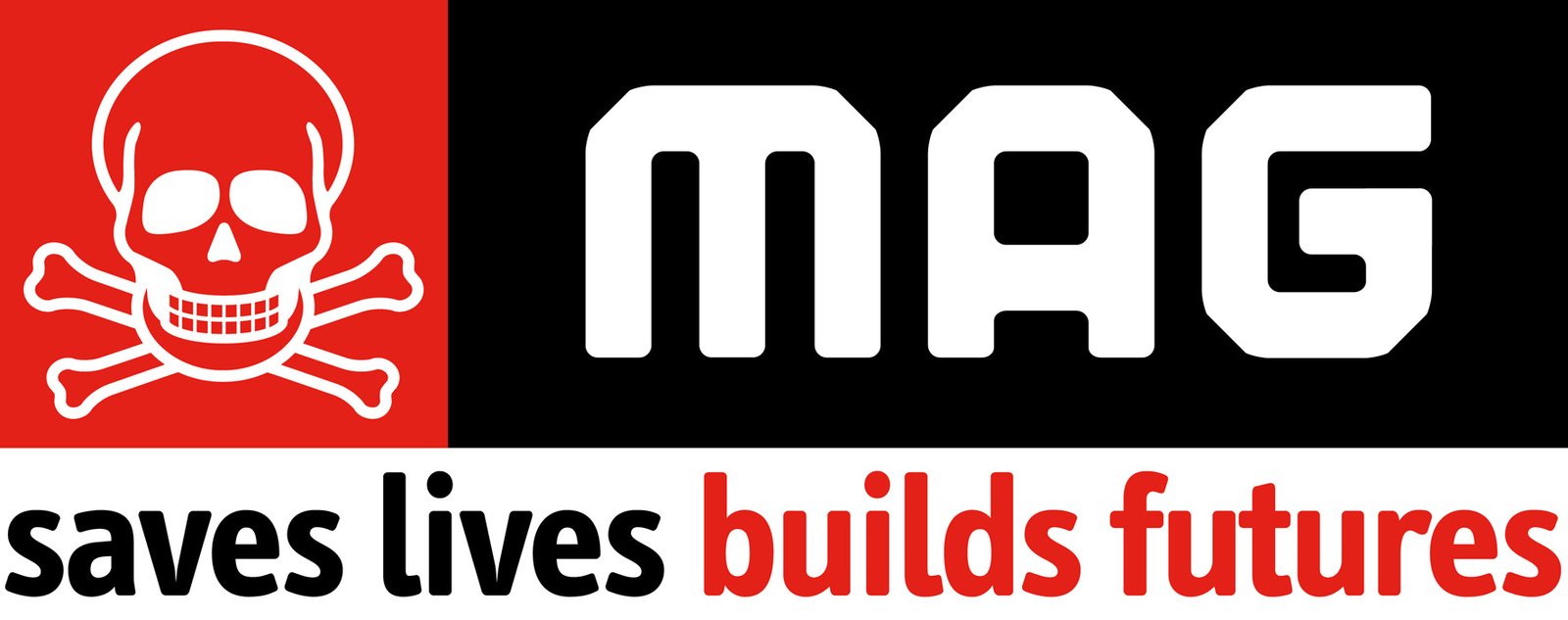 Mines Advisory Group International (MAG) saves lives and builds futures by working with others to reclaim land contaminated with the remnants of conflict find ways to reduce the daily risk of death or injury for civilians & create safe and secure conditions for development, free from armed violence Mines Advisory Group International (MAG) saves lives and builds futures by working with others to reclaim land contaminated with the remnants of conflict find ways to reduce the daily risk of death or injury for civilians & create safe and secure conditions for development, free from armed violence |
 Malaria Consortium is one of the world’s leading non-profit organisations specialising in the prevention, control and treatment of malaria and other communicable diseases among vulnerable people. Our mission is to improve lives in Africa and Asia through sustainable, evidence-based programmes that combat targeted diseases and promote child and maternal health. Malaria Consortium is one of the world’s leading non-profit organisations specialising in the prevention, control and treatment of malaria and other communicable diseases among vulnerable people. Our mission is to improve lives in Africa and Asia through sustainable, evidence-based programmes that combat targeted diseases and promote child and maternal health. |
Medair is an international humanitarian organization bringing relief and recovery around the globe to communities affected by wars, natural disasters and other catastrophes. Medair helps to provide basic needs. As an organization, we are focusing on health and nutrition, shelter and infrastructure, water, hygiene and sanitation, cash assistance and psycho-social assistance |
|
 |
 NRC – Norwegian Refugee Council The Norwegian Refugee Council (NRC) is an independent humanitarian organisation helping people forced to flee. We work in crises in more than 30 countries, where we help save lives and rebuild futures. NRC – Norwegian Refugee Council The Norwegian Refugee Council (NRC) is an independent humanitarian organisation helping people forced to flee. We work in crises in more than 30 countries, where we help save lives and rebuild futures. |
|
 Oxfam Intermón (Oxfam Spain) are people who struggle with and for disadvantaged populations and as part of a wider global movement, with the goal of eradicating poverty and injustice, and to ensure that all human beings can fully exercise their rights and enjoy a decent life. Oxfam Intermón (Oxfam Spain) are people who struggle with and for disadvantaged populations and as part of a wider global movement, with the goal of eradicating poverty and injustice, and to ensure that all human beings can fully exercise their rights and enjoy a decent life. |
|
In over 30 years, Polish Humanitarian Action (PAH) has become one of the largest and most active non-governmental, non-profit humanitarian organizations in Central Europe. Rooted in human rights and driven by the guiding principles of humanitarian aid, we strive to alleviate the suffering of vulnerable communities during all phases of crises. We provide comprehensive aid in difficult to reach areas around the world. We are currently implementing humanitarian and development projects in Kenya, Lebanon, Madagascar, Palestine, Somalia, South Sudan, Syria, Ukraine, Yemen, and supporting refugees in Poland. We have an emergency team ready to respond to sudden crises worldwide. |
|
In addition to humanitarian aid and human rights, it now also targets education and helps people living in social exclusion. We are part of Alliance 2015, a strategic network of European non-governmental organizations engaged in humanitarian aid and development projects. |
 Plan is an international development organisation operating in 51 countries across Africa, Asia and the Americas to promote and protect the rights of children.The nonprofit organisation is one of the world’s largest child-centred community development organisations, working in 58,000 communities with 600,000 volunteers to improve the quality of life for more than 56 million children. Plan has 21 national organisations responsible for raising funds and awareness in their respective countries. Plan is an international development organisation operating in 51 countries across Africa, Asia and the Americas to promote and protect the rights of children.The nonprofit organisation is one of the world’s largest child-centred community development organisations, working in 58,000 communities with 600,000 volunteers to improve the quality of life for more than 56 million children. Plan has 21 national organisations responsible for raising funds and awareness in their respective countries. |
Our team of staff and local volunteers work in 14 countries across Africa, Asia, and the Middle East, providing Health and Nutrition, WASH (Water, Sanitation, and Hygiene), Education and Livelihoods programming that creates the foundation for community resilience. We do this by working with local actors to develop safe and inclusive local programming that is evidence based, conflict sensitive, climate smart, and reaches those in need. |
 Save the Children International is the world’s largest independent movement working for children. It is actively working in over 120 countries in the fields of emergency humanitarian aid by providing food and medical care, but also through programmes in health, nutrition, education, protection and child rights. Save the Children International is the world’s largest independent movement working for children. It is actively working in over 120 countries in the fields of emergency humanitarian aid by providing food and medical care, but also through programmes in health, nutrition, education, protection and child rights. |
|
|
|
Our mission is to provide aid as quickly and as efficiently as possible to endangered populations by meeting their vital needs: drinking water, food and shelter. SOLIDARITÉS INTERNATIONAL is particularly committed to fighting water-related diseases. Drawing on their expertise, our teams develop and carry out aid programs in the fields of water, sanitation and hygiene, as well as in the essential domains of food security and reconstruction. |
 Tearfund is a Christian relief and development agency, working through local churches to unlock people’s potential and helping them to discover that the answer to poverty is within themselves. When disasters strike, we respond quickly. We won’t stop until poverty stops. Tearfund is a Christian relief and development agency, working through local churches to unlock people’s potential and helping them to discover that the answer to poverty is within themselves. When disasters strike, we respond quickly. We won’t stop until poverty stops. |
To make a difference, we focus on the areas of maternal and child health, children and youth migration, and access to justice. We aim to empower children and youth through active participation. We advocate for the respect of children’s rights, supporting them in voicing their needs and interests. We work in fragile and conflict settings, as well as in stable environments
|
|
More information about Trócaire can be found on http://www.trocaire.org/. |
We provide integrated aid: from rapid disaster relief to long-term development cooperation projects. Our fundamental principle is help for self-help; together with local partner organisations, we strengthen structures from the bottom up and ensure success of the project work in the long-term. In addition, we inform the public and take an advisory role in politics – nationally and internationally. This is how we fight to change the conditions that lead to hunger and poverty. Our vision is a world in which all people can exercise their right to a self-determined life in dignity and justice, free of hunger and poverty. |
At World Vision International, our focus is on helping the most vulnerable children overcome poverty and experience fullness of life. We help children of all backgrounds. |
